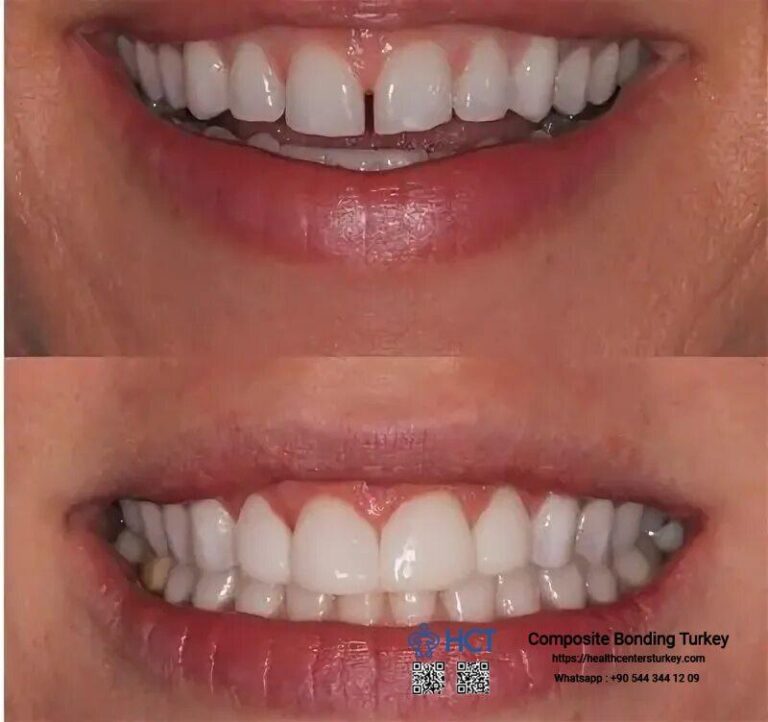Expertise in Restorative Dentistry at Affordable Rates
Expertise in Restorative Dentistry at Affordable Rates
Blog Article
Create the Perfect Smile with Implants and Veneers
Dental implants have turn into a popular answer for those trying to replace missing teeth. Understanding how these implants can affect adjacent teeth is important for anybody considering this process, in addition to for dentists and specialists concerned in dental care.

One important facet is that dental implants are designed to be anchored into the jawbone, which suggests they're independent of adjacent teeth. Unlike dental bridges, which often require the alteration of neighboring teeth, implants can fill the hole without compromising the health or structure of those surrounding teeth.
This independence helps preserve the integrity of adjacent teeth. When a tooth is misplaced, there can be a natural tendency for neighboring teeth to tilt or shift into the empty area. Such movement can lead to misalignment, which might have an result on bite and total oral health. By putting an implant, you effectively prevent this potential shift, selling better alignment in the long term.
Transformative Dental Care Experiences for Foreign Patients
Additionally, dental implants help keep bone density in the jaw. A natural tooth root supplies stimulation to the encompassing bone, keeping it wholesome and powerful. When a tooth is missing, the bone can start to deteriorate due to lack of stimulation. With a dental implant mimicking a natural root, bone loss can be minimized, which not directly benefits adjacent teeth by preserving the general structure of the dental arch.
While dental implants are advantageous, improper placement can impact neighboring teeth. If an implant is positioned too shut to another tooth, it may exert undue pressure on that tooth, resulting in discomfort or potential damage. Proper planning and imaging strategies are essential for avoiding such points.
Comprehensive Smile Makeover Options in Antalya
Moreover, maintaining good oral hygiene is essential after receiving an implant. If not properly cleaned, surrounding teeth might become vulnerable to dental points similar to decay or gum disease. This underscores the significance of diligent oral care following the procedure to make sure both implants and adjacent teeth remain wholesome.
Regular dental check-ups are also important for monitoring the health of surrounding teeth. Dentists can identify any shifts or potential problems early, permitting for well timed interventions. This proactive strategy ensures that both the implant and adjacent teeth can coexist without problems.
Affordable Teeth Whitening at Renowned Practices in Turkey
Another consideration is the influence of implants on bite pressure. When a single tooth is missing, the load of chewing could shift to adjacent teeth, potentially resulting in put on or strain. Implants restore correct chunk dynamics by redistributing forces in the mouth, which may defend surrounding teeth from undue stress.
Some patients might elevate concerns concerning the appearance of dental implants. Well-placed implants can mix seamlessly with current teeth, improving general aesthetics. In distinction, failing to switch a missing tooth can lead to aesthetic issues, including collapsing of facial structure and modifications in smile dynamics.
It's additionally worth discussing the psychological elements of dental health. Experiencing tooth loss can adversely affect one’s self-esteem and willingness to engage socially. By restoring your smile with implants, you'll have the ability to positively influence not only your oral health but in addition your emotional well-being.
Long-term success of dental implants typically hinges on varied components, including the patient's health, maintenance habits, and the quality of the initial process. If adjacent teeth are wholesome and correctly cared for, the chances are they will continue to thrive alongside the implants.
Optimize Your Teeth Treatment with Qualified Professionals in Turkey
In conclusion, dental implants play a crucial function in not just restoring individual smiles, however in preserving the health and structure of adjacent teeth. By stopping shifting, maintaining bone density, and redistributing bite forces, implants can be positive that surrounding teeth basics stay in optimum condition. Proper placement, hygiene, and common dental visits can additional improve the advantages of dental implants, resulting in a more healthy, extra confident smile for years to come.
- Dental implants can help keep the alignment of adjacent teeth by providing a secure anchor, preventing adjacent teeth from shifting into the gap left by a missing tooth.
- The presence of an implant might stimulate bone progress within the jaw, serving to to protect the overall structure and integrity of the adjacent teeth.
- Unlike traditional bridges, implants do not require alteration of surrounding teeth, thus preserving their power and anatomy.
- Implants can enhance the distribution of bite forces evenly across the dental arch, reducing the stress on neighboring teeth throughout chewing.
- A well-integrated dental implant can decrease the chance of bone loss within the space surrounding adjacent teeth, contributing to their long-term health and stability.
- The aesthetics of adjacent teeth may be improved as a outcome of assist offered by implants, which can lead to higher total beauty outcomes.
- With correct placement, dental implants can prevent gum recession around adjacent teeth by maintaining adequate dental structure.
- Implants can help mitigate the risks of periodontal disease in close by teeth by selling wholesome gum tissue and providing a cleanable floor.
- Long-term success of dental implants can result in improved oral hygiene routines, which in turn benefits the health of surrounding teeth.
- The improved practical ability of an implant can encourage sufferers to chew more effectively, thus rising saliva manufacturing and aiding in the protection of adjacent dental tissues.undefinedHow do dental implants have an effect on adjacent teeth?
What are dental implants and the way do they work together with adjacent teeth?undefinedDental implants are artificial tooth roots that are surgically positioned into the jawbone. They present a stable basis for replacement teeth whereas making certain minimal disruption to adjacent teeth, preserving their integrity and alignment. Luxury Dental Packages for International Clients in Turkey.
Comprehensive Dental Solutions in Turkey for a Beautiful Smile
Can dental implants cause problems for close by natural teeth?undefinedGenerally, dental implants do not harm adjacent natural teeth. However, if the implant just isn't positioned appropriately or if there’s inadequate oral hygiene, it could result in problems such as adjacent tooth decay or gum disease.

Will getting a dental implant change the way my adjacent teeth feel?undefinedMost sufferers report no change within the sensation of adjacent teeth after implant placement. However, it could take a while to regulate to the presence of the implant, just like how one might adapt to other dental restorations.
Can dental implants help preserve the health of adjacent teeth?undefinedYes, dental implants can help maintain the health of adjacent teeth by preventing bone loss that may happen after tooth loss. This preservation helps the alignment of close by teeth, decreasing the danger of shifting or misalignment.
Benefits of Dental Treatments in Turkey including International Patients
Do I need to modify adjacent teeth when getting an implant?undefinedTypically, adjacent teeth don't want alteration when inserting an implant. This is considered one of the advantages of dental implants over traditional Learn More bridges, which regularly require reshaping adjacent teeth for assist.
How does the therapeutic means of an implant affect nearby teeth?undefinedThe therapeutic course of includes osseointegration, where the implant fuses with the jawbone. During this time, adjacent teeth remain unaffected and retain their function, although it’s important to comply with post-operative care recommendations. Revitalize Your Smile with Cutting-Edge Dental Treatments in Turkey.
The Hub for Quality Dental Care at Low Costs
Can dental implants lead to bone loss round adjacent teeth?undefinedIf dental implants are positioned properly and cared for adequately, they should not result in bone loss around adjacent teeth. In fact, they may help stimulate bone progress, combating the natural bone loss that often follows tooth extraction.
What precautions ought to I take to guard adjacent teeth after getting an implant?undefinedRoutine dental hygiene, including brushing and flossing, together with regular dental check-ups, is crucial. Avoiding exhausting foods and following your dentist’s aftercare directions may also protect each the implant and adjacent teeth.
Is it common for adjacent teeth to shift after an implant is placed?undefinedIt's not typical for adjacent teeth to shift after an implant placement, particularly when the implant is placed correctly and maintained correctly. If there’s any movement, it could be because of different underlying issues that should be evaluated by a dental skilled. Report this page